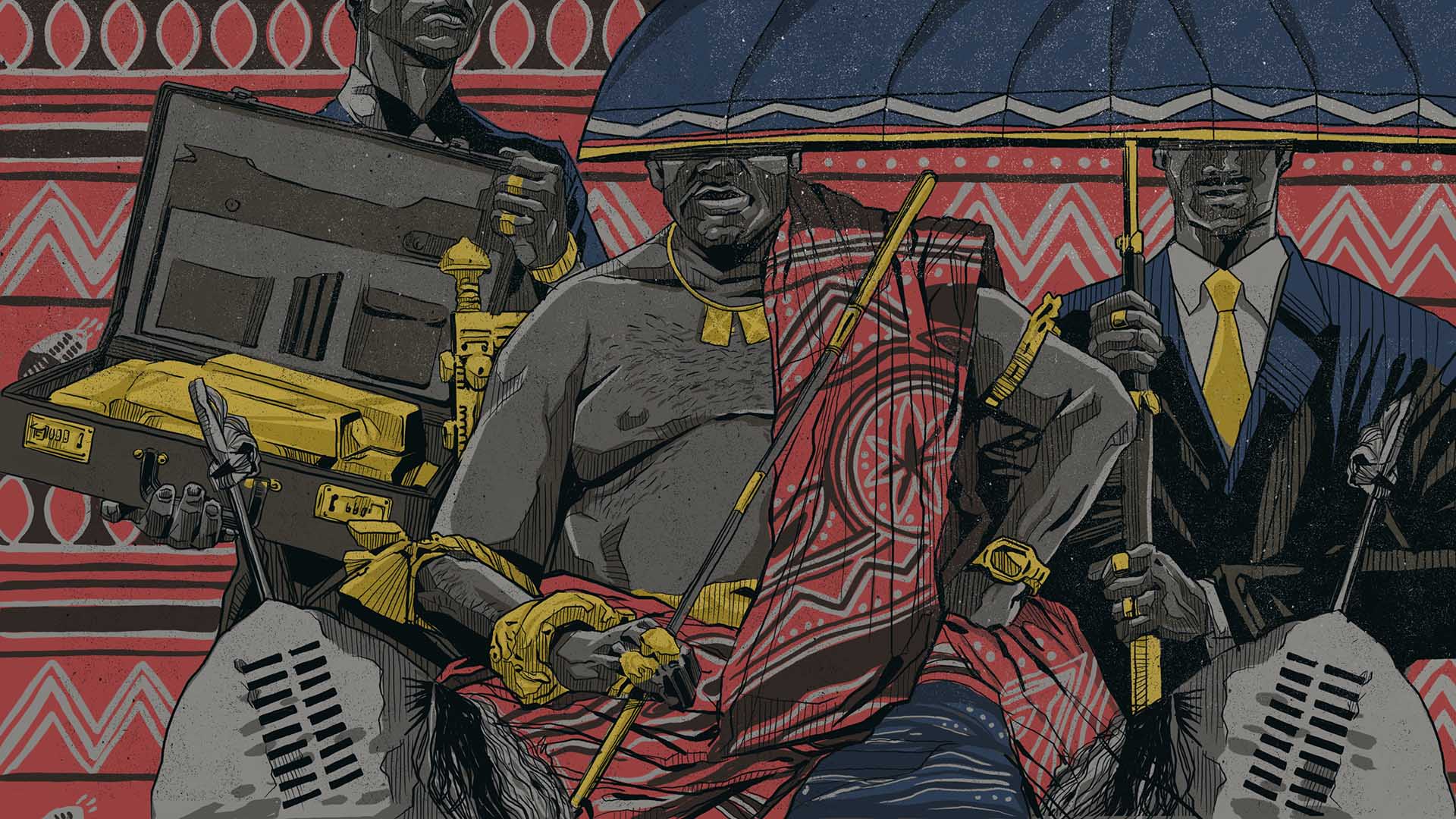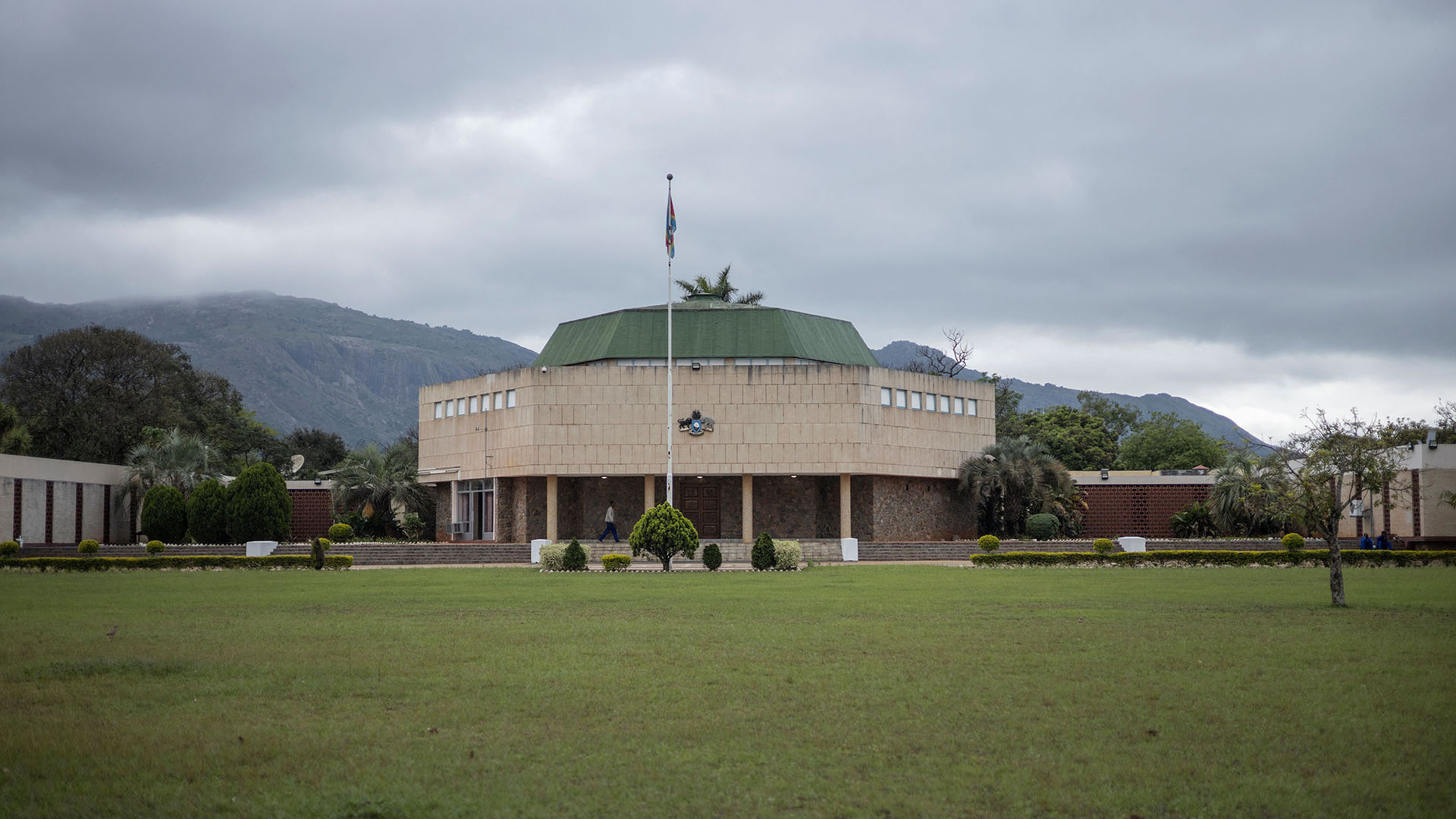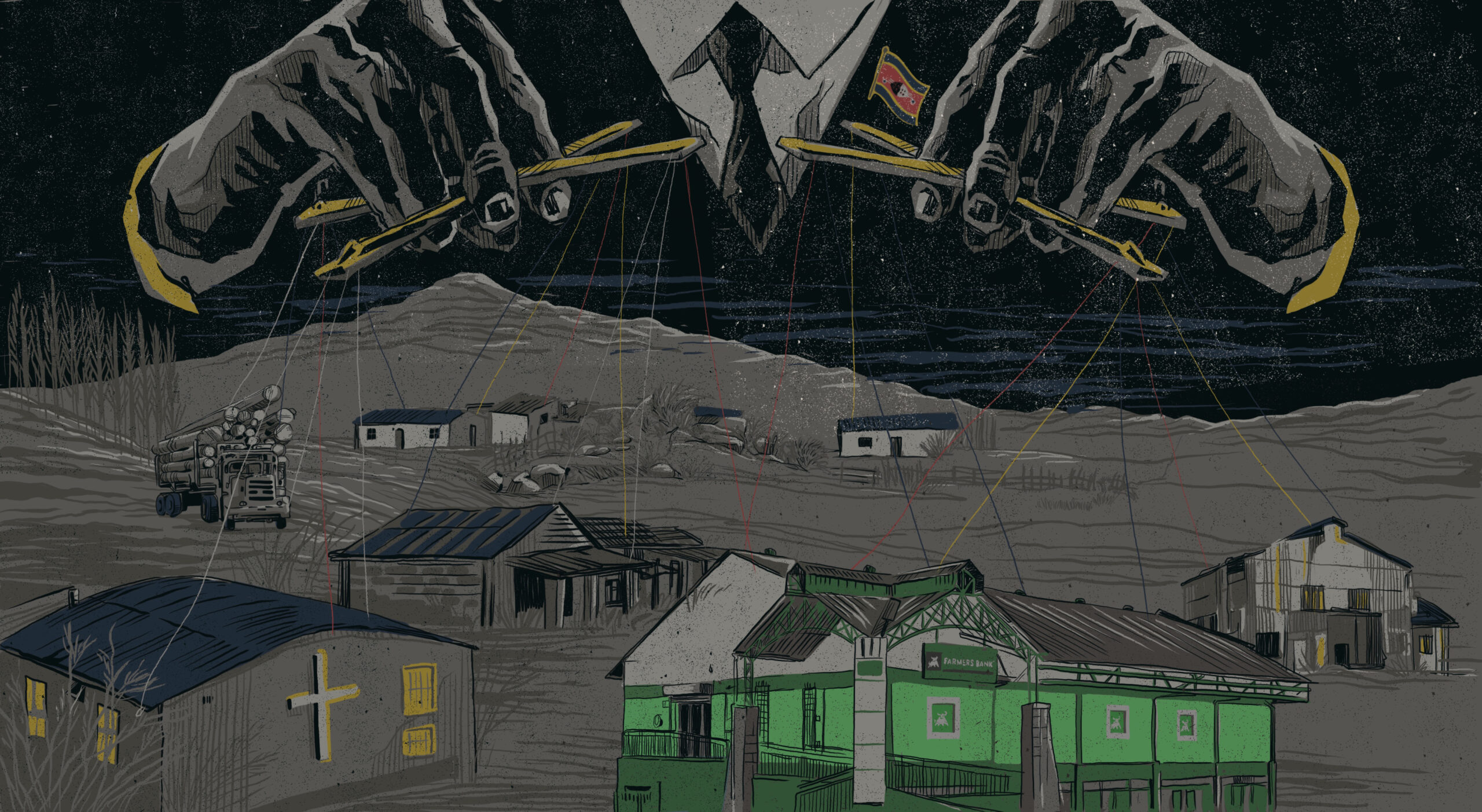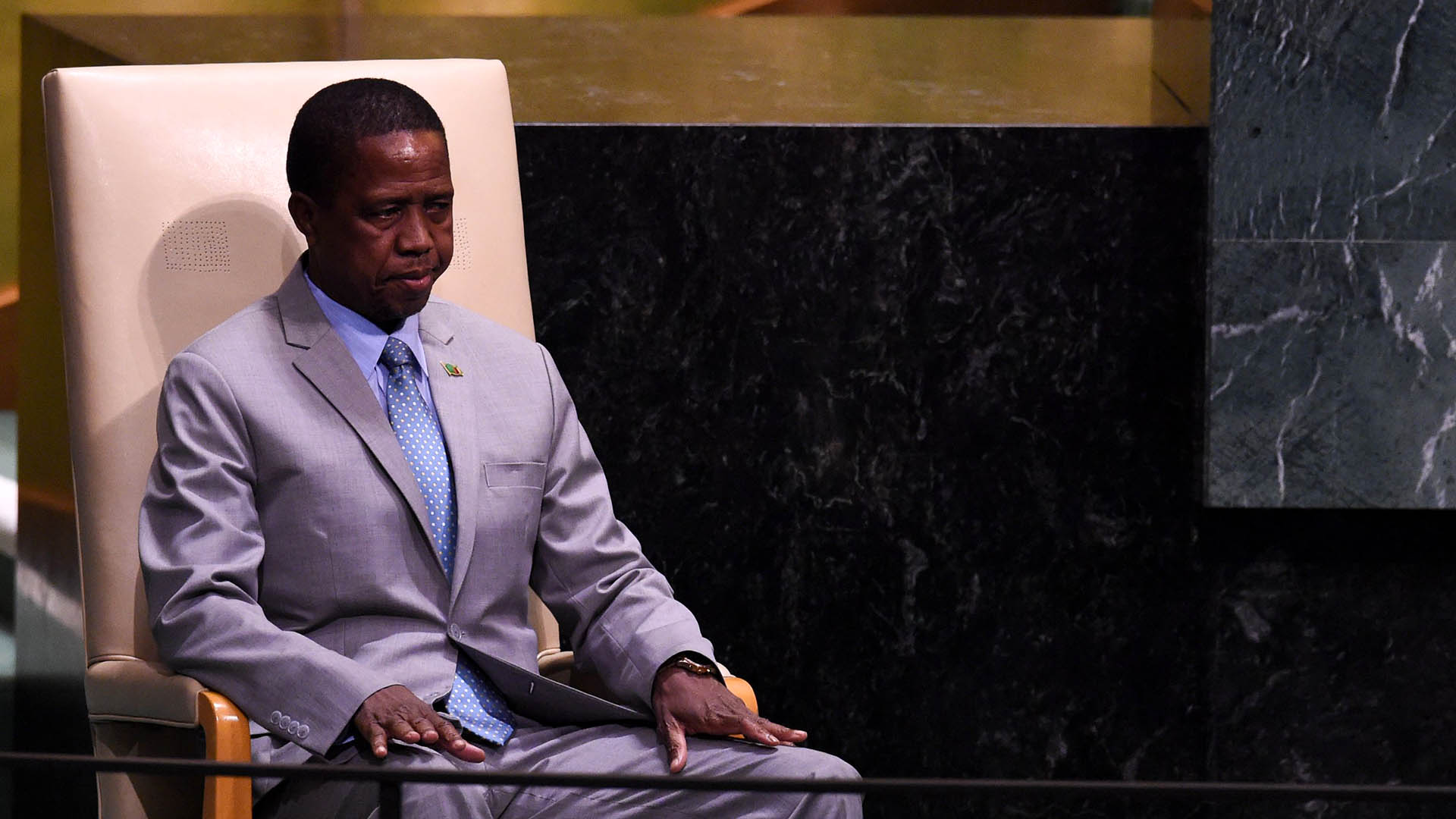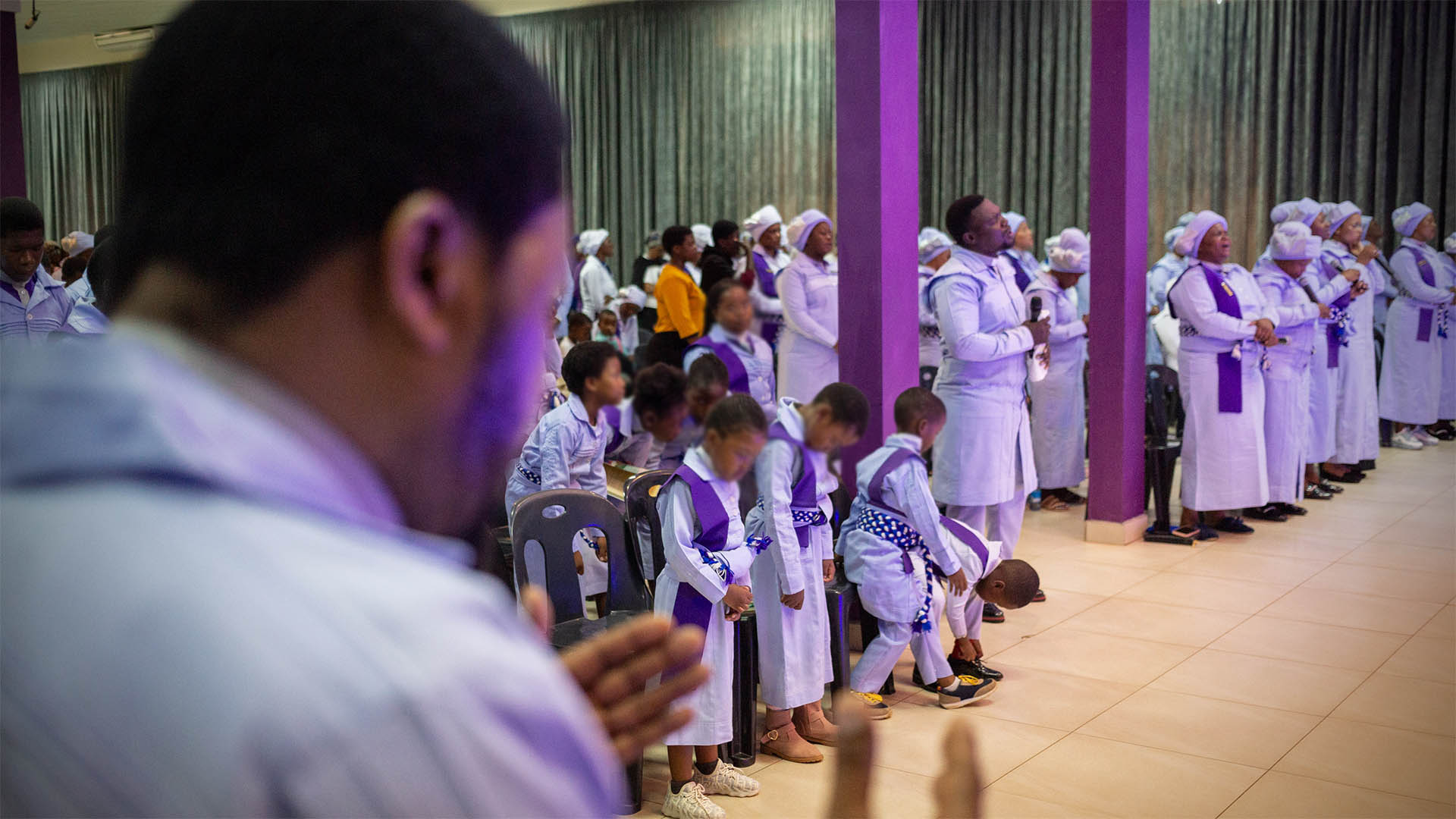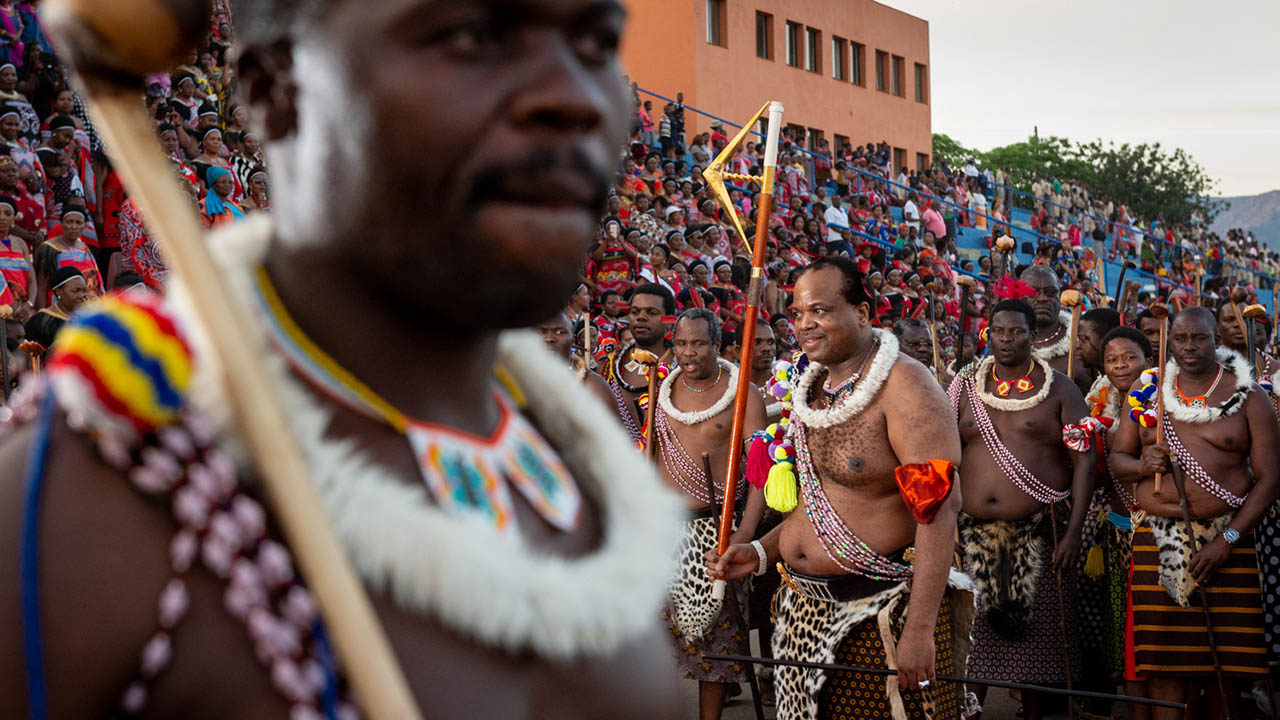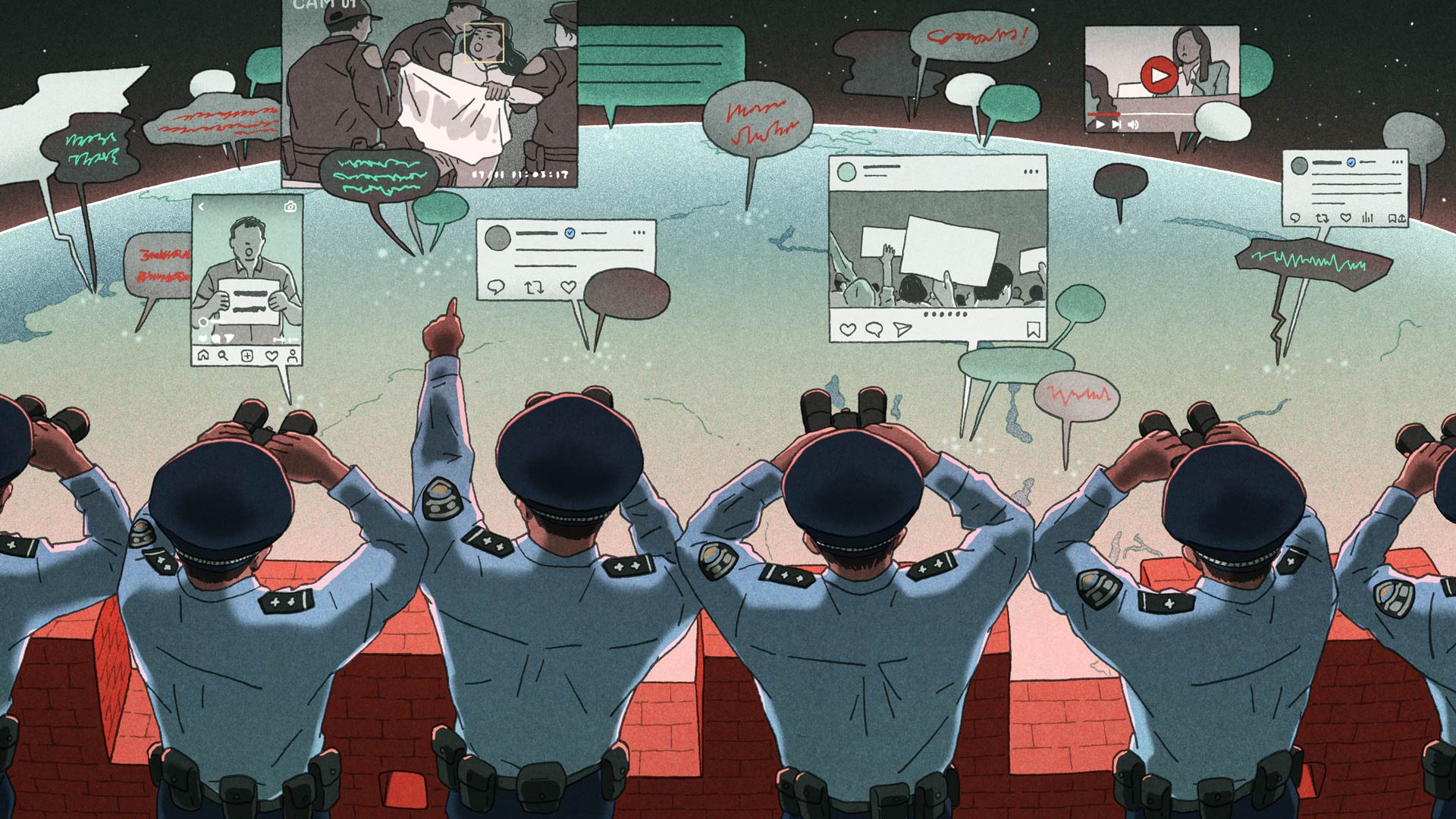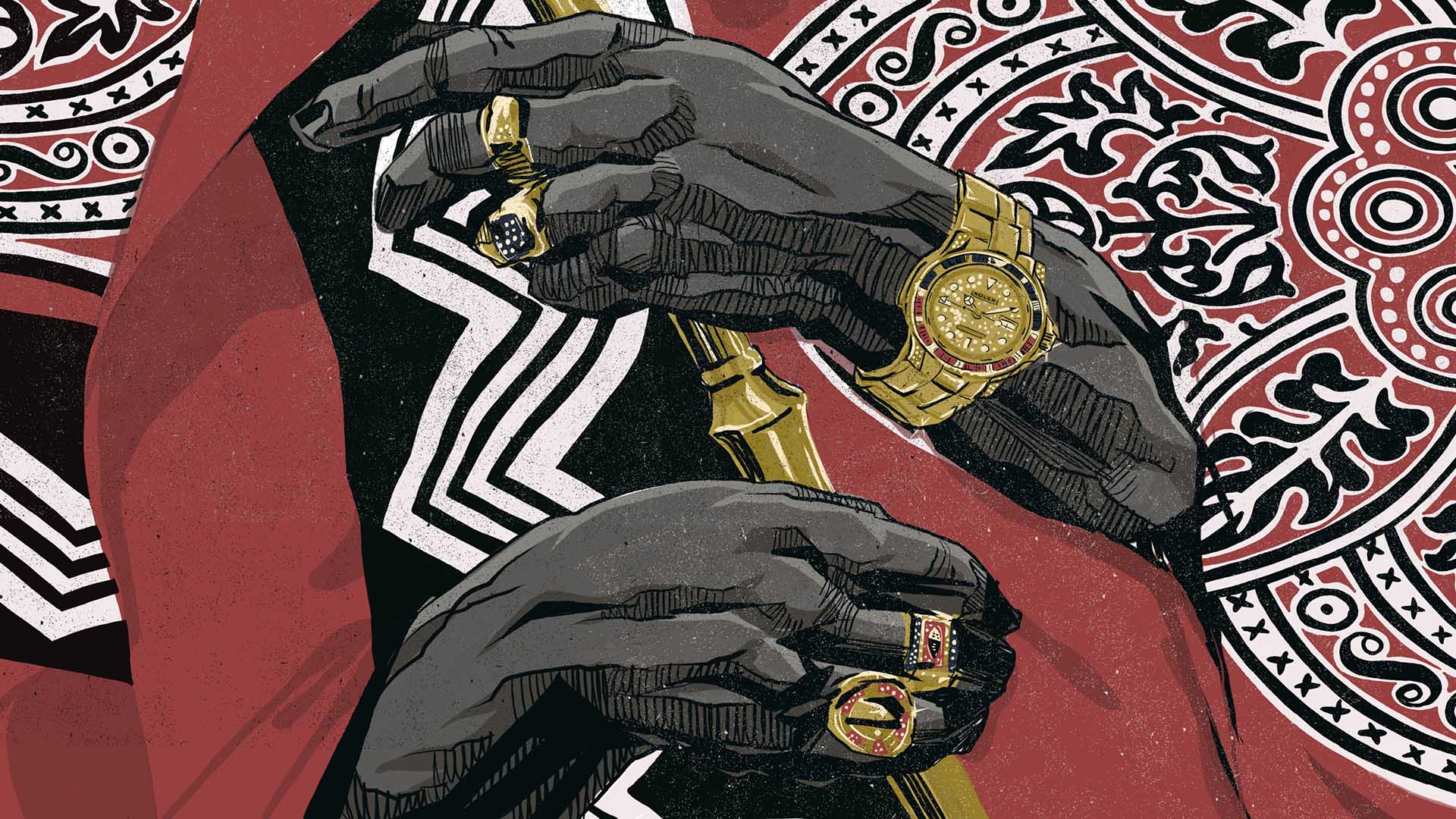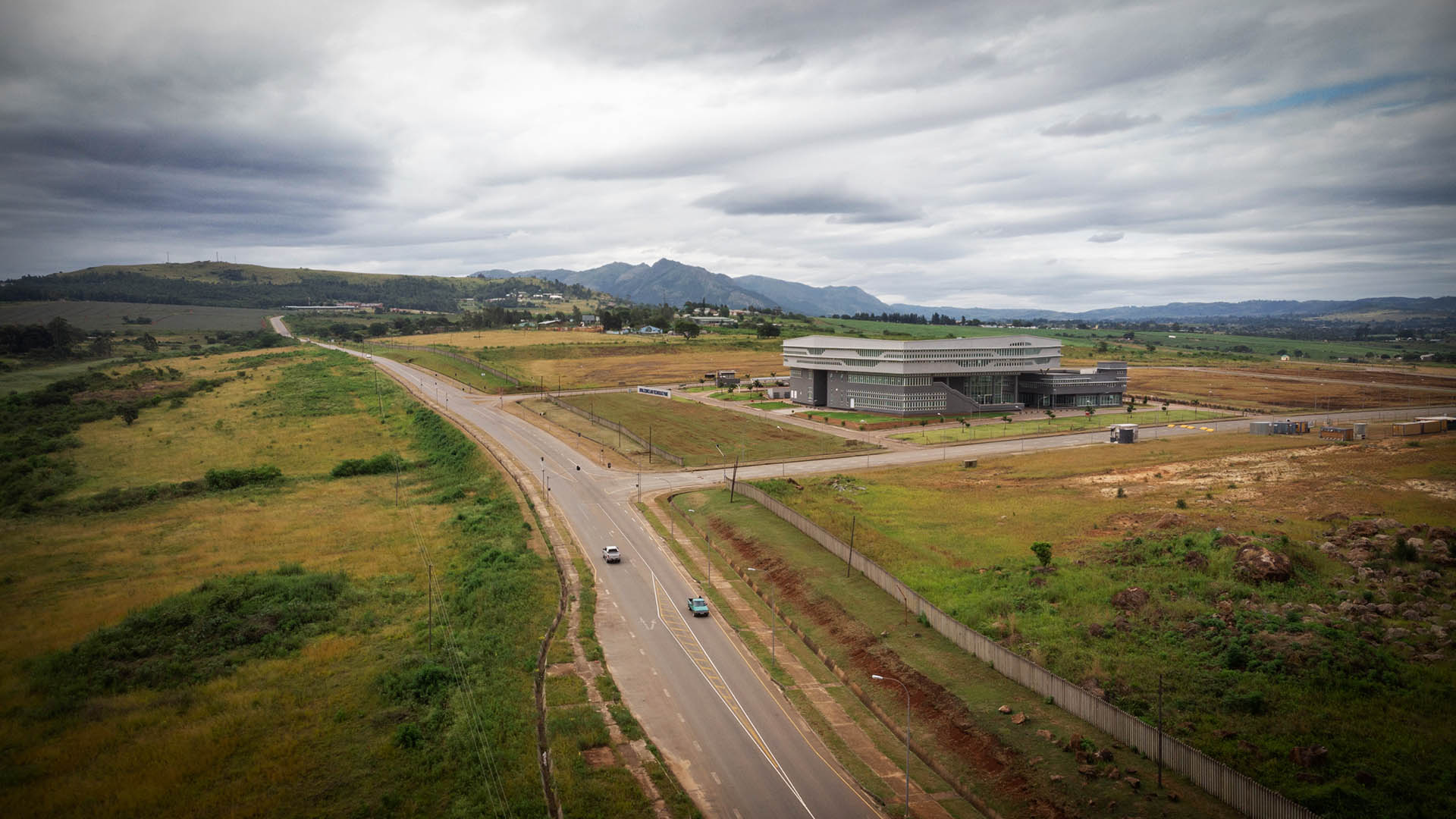
After sweet-talking our way past a friendly security guard with a large rifle — “This is nothing; you should see the guns they have inside,” he said — my two colleagues and I were in the courtyard of the Usuthu country club, chatting with the head of a private security firm.
The club, in the serene village of Mhlambanyatsi, surrounded by hills of timber forests, is about a 30-minute drive south of Mbabane, the capital of Eswatini. We were in the tiny Southern African country to follow a couple of leads — information that pointed to the security firm’s potential involvement in quelling anti-government dissent — as part of a reporting trip for what would eventually become the Swazi Secrets project. Based on leaked documents from a local financial oversight body, which were obtained by Distributed Denial of Secrets, the ICIJ-led investigation brought together 38 journalists from 11 countries to shed light on the role that Africa’s last absolute monarchy plays in the regional and global illicit economy.
The security company was rumored to be acting as a secretive mercenary outfit, suppressing pro-democracy protests that swept the country since 2021. The leaked documents didn’t include enough evidence to establish exactly what the company’s employees were up to. What the leak did show, however, was that the company that owned the country club and had hired the security firm — and which was founded by the country’s finance minister — had procured sensitive surveillance equipment, seemingly to help prop up the state.
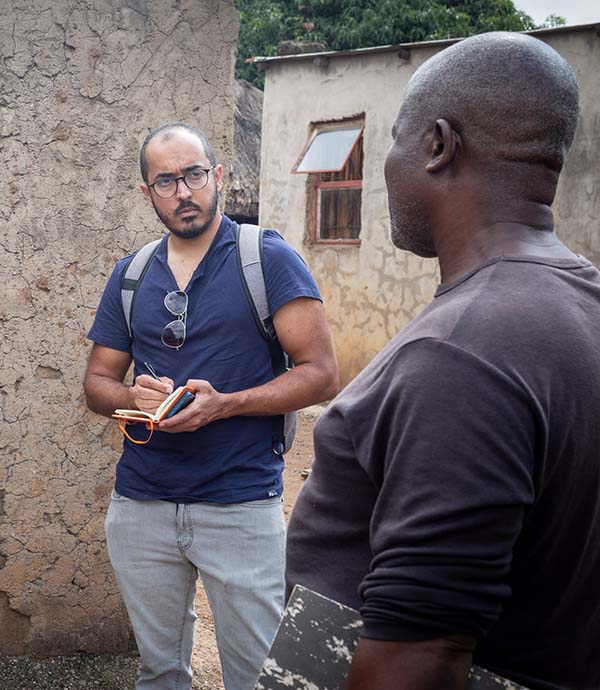
At this point we had made steady progress in sifting through the over 890,000 documents in the leak. Over successive reporting trips, I visited much of the west and central parts of Eswatini, interviewing sources, badgering reluctant officials for information, and tracking down the many, many addresses that cropped up in the leaks, like the Usuthu country club.
On the face of it, most of the locations I visited seemed totally unremarkable and innocuous — even boringly pleasant, like the country club, or the rural church we visited just off the main arterial road that bisects the country.
There is little that sets apart the All Nations Christian Church in Zion from the countless other churches that have mushroomed across the country in recent years. Outside the main church hall — a building resembling an industrial warehouse — we met the “archbishop,” Bheki Lukhele.
Lukhele is a stocky, affable man with a disarmingly gappy smile. But his overly protective bodyguards were odd for someone who’s supposedly just a middling man of God. Perhaps, I thought at the time, they were a sign of someone who wanted to keep scrutiny of his earthly activities at bay.
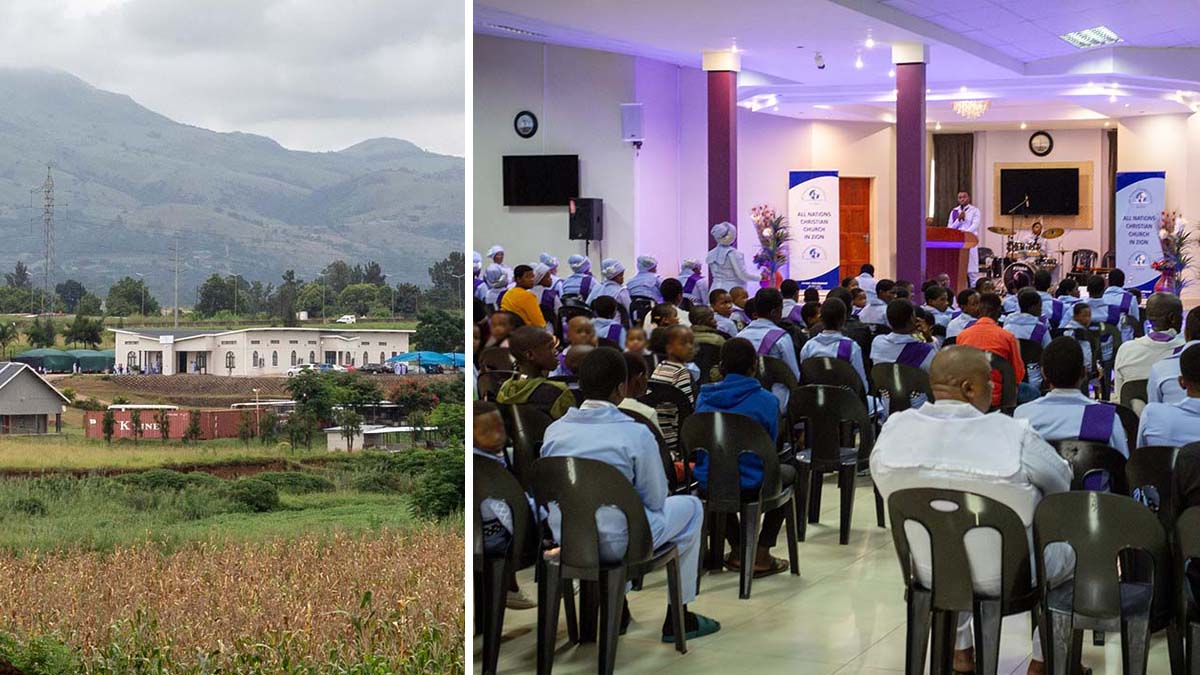
Inside the cavernous hall, churchgoers swayed in song or spoke in tongues as one particularly irritable bodyguard tried to swat away ICIJ’s photographer. Presumably, the congregants had no clue that the humble church and its leader were conduits for millions of dollars. That’s why we were there — to see firsthand the scene that Swazi authorities had flagged as a key node in complex transactions involving politically connected figures in Eswatini and across the border in South Africa. The authorities determined that the transactions were suspicious and potentially unlawful.
From the church, we drove about 60 miles north — sometimes over rough four-wheel drive terrain — to the remote border town of Bulembu, a former asbestos mining town that was largely deserted after demand for the material plummeted. The picturesque town had undergone a minor revival in recent years as the site of a church and orphanage.
We had come to Bulembu to find a new bank that, bizarrely, had opened in a town with an almost non-existent economy. Again, what we saw was unremarkable: a modest, freshly painted building. Inside were brand-new steel waiting room benches and counters. It looked like any other bank, but the story behind it was full of intrigue.
The bank existed in limbo amid an ongoing tussle between its shadowy Canadian founders and Swazi authorities who were concerned about the lack of transparency around the bank’s ownership and were demanding answers about the source of its funding. Our Swazi Secrets investigation revealed the political interests behind the bank, questionable money flows, and the opaque role of a controversial and highly litigious Canadian property developer — John Asfar.
Farmer’s Bank downplayed Asfar’s role, and he failed to produce required personal financial records, according to a firm that reviewed the bank’s license application. He and his brother Alexandre, who formally owned the bank, had been involved in endless litigation with the Canadian tax authority and with other family members over issues like their father’s estate. His company, Travellers Inn, had also filed for bankruptcy in Canada.
When we sent him questions for the story, Asfar responded with rambling, conspiracy-filled letters and messages in which he accused ICIJ of “financial terrorism” and threatened to sue. In April, shortly after publication, local media reported that Asfar attempted to physically gain control of the bank with the help of armed security after he was removed as a director. It was like a “scene from a movie,” wrote the Times of Swaziland.
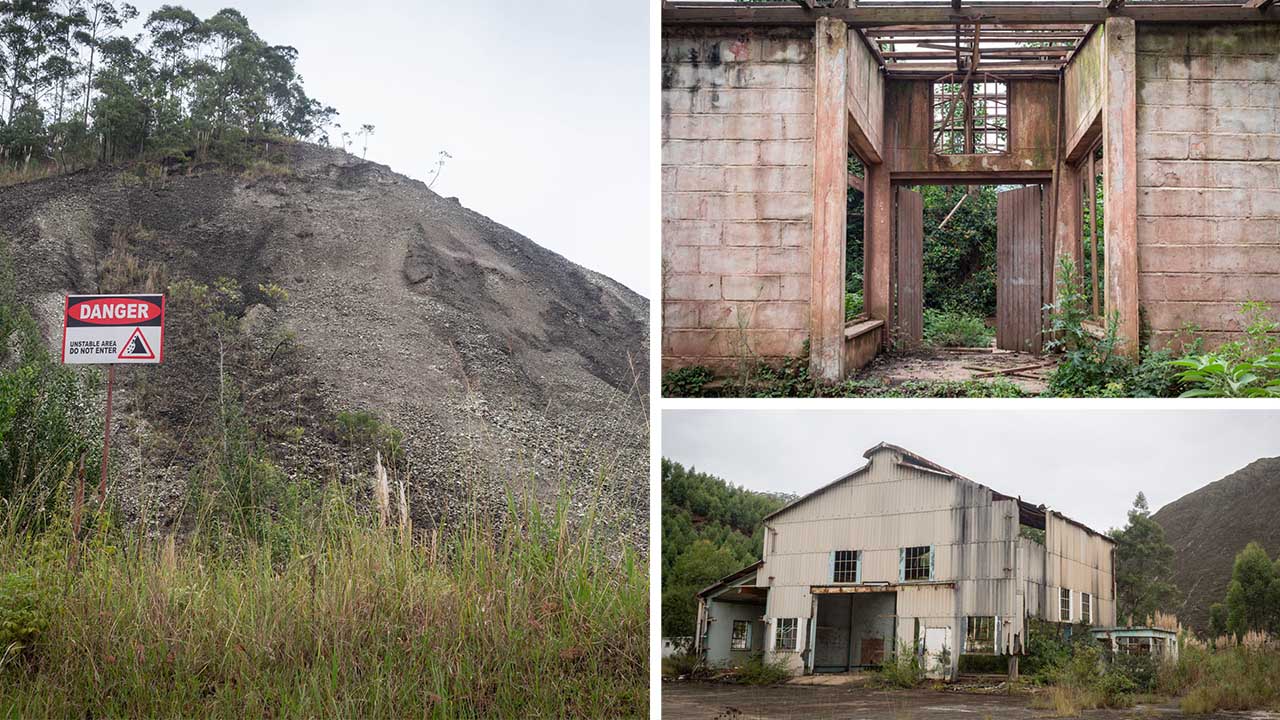
Earlier in our reporting, we’d traveled to central Eswatini, outside the commercial hub of the town of Manzini, to yet another seemingly unremarkable property. For anyone who didn’t know the backstory, there wasn’t much to see: a central administration building surrounded by a grid of wide, empty roads and vacant plots of land. It was supposed to be a “special economic zone,” free of red tape and regulation, that would draw in investors with a range of incentives. A pet project of the king, the special economic zone promised to make Eswatini the next Dubai. Instead, it was a white elephant with massive financial loopholes. And it enabled murky international gold traders and money launderers to move millions of dollars in what government authorities suspected to be illicit transactions.
Worse still, the area demarcated for the project was once home to ordinary Swazi citizens — people who’d grown up there, raised animals and grew crops, and buried their family members on the land. When the government decided to embark on its poorly conceived scheme, it forcibly removed the inhabitants of the area, leaving many homeless.
Our story on the special economic zone touched on a part of the dark underbelly of a society in which power is exercised ruthlessly, arbitrarily and without accountability.
When we began working on the Swazi Secrets project, Eswatini was still on edge, reeling from widespread pro-democracy protests in 2021. Dozens were killed in the heavy-handed response by the state. In 2023, prominent human rights lawyer and regime critic Thulani Maseko was assassinated in his home in front of his family. Maseko was a member of the People’s United Democratic Movement — a banned organization in a country where political parties are illegal.

In the Swazi Secrets leak, the boyish-faced 56-year-old king, Mswati III, was nowhere and everywhere at the same time. His name was rarely mentioned, but his fingerprints were ubiquitous. Through proxies and associates, he loomed in the background of every story.
He and his expansive family travel the country in a fleet of ultra-luxury vehicles, flaunt watches worth millions, and tour the globe in private jets fit for a leader of a superpower — all while presiding over a tiny, impoverished country of only 1.2 million.
The country’s national motto is “Siyinqaba” — literally, “we are the fortress” — and so far, the last redoubt of absolute monarchy in Africa has resisted internal and external pressure for change. For all the controversy, the excesses, the violence — and despite growing anti-monarchy sentiment within the country — the king enjoys a level of international respectability that belies the state of Eswatini. He has managed to do so by presenting himself as the smiling, soft-spoken and urbane face of a monarchy that is in touch with its subjects and has their best interests at heart. The monarchy seeks to tell the world that it embodies the modern aspirations and traditional values of the people.
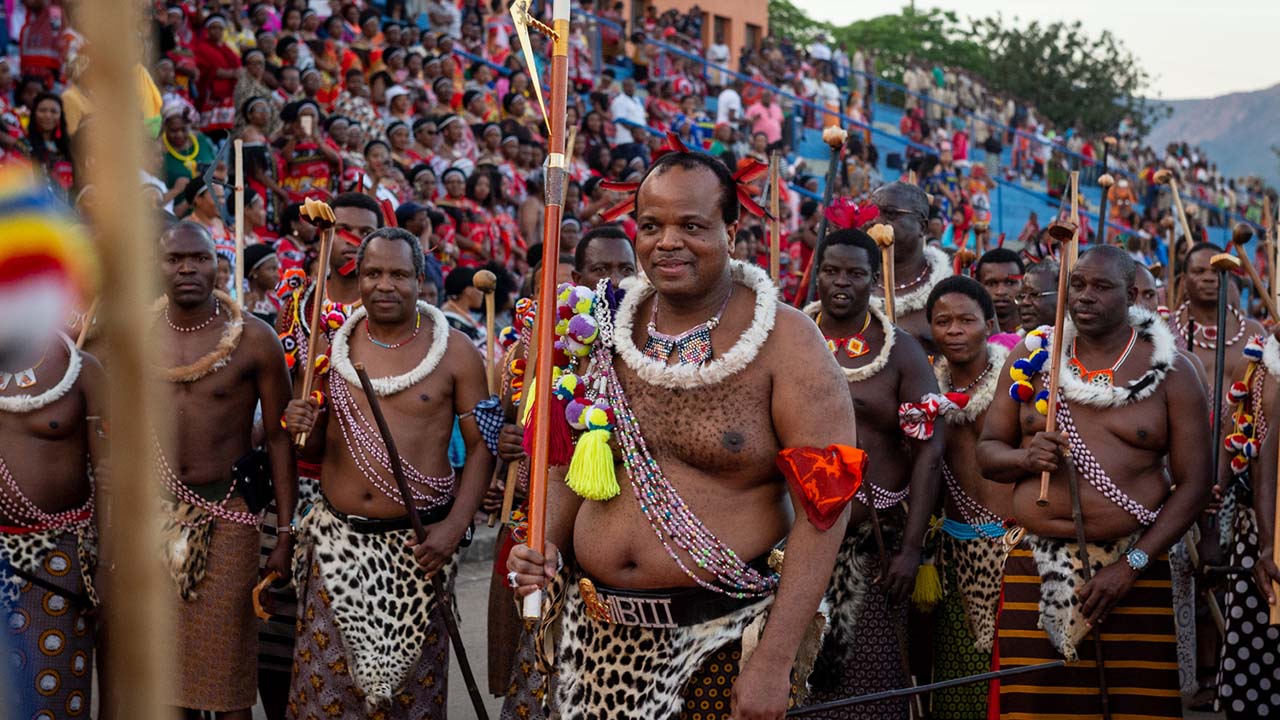
Similarly, the state Mswati rules outwardly projects a friendly and open image, especially to foreigners. Eswatini welcomes tourists to its game parks and investors to its business-friendly environment. Unlike in other autocracies, soldiers and police are not ever-present. While we had to be discreet as journalists, we were never hounded for taking photographs or treated with more than the usual suspicion one expects from officialdom anywhere. Some of our colleagues were followed by security agents, but our only encounter with law enforcement involved an unofficial $2.50 speeding “fine” that was paid to a smiling officer.
But once we scratched beneath the surface and started talking to ordinary people, like those who were evicted from where the special economic zone now sits, a very different picture emerged. Many spoke in hushed tones when the conversation turned to politics, but one thing soon became clear: people are angry. But repression, or the threat of it, is never far away from their thoughts.
Like every seemingly mundane place we visited, ordinariness and charm often mask a dark side in Eswatini. The bucolic landscapes, smiling citizens and affable king belie the political dark arts and coercion that sustain the monarchy. The pleasant little country club, the church, the bank, the vacant land — all totally unremarkable — also gave away very little about the dark money behind them.
